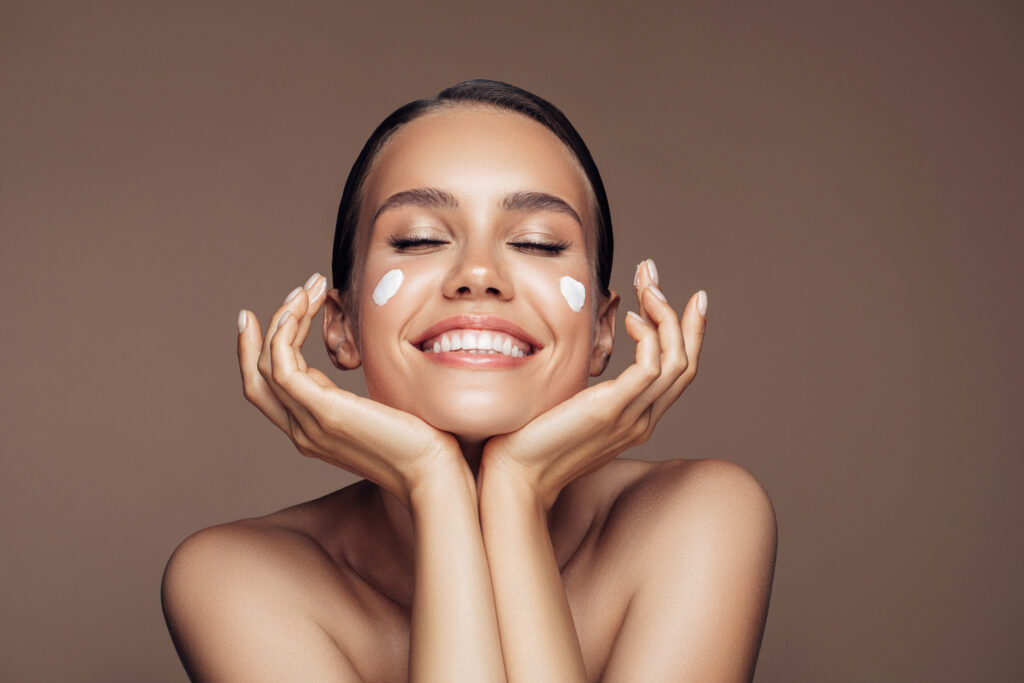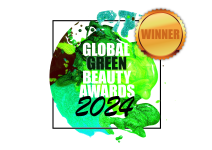You probably already know about the amazing ecosystem of friendly bacteria in the gut and how it supports your health, but did you know that the skin is also home to a thriving community of beneficial microbes?
Both the skin and the lining of the gut are permeable to a certain extent, which means that what you eat, and also what you put on your skin, can be absorbed into the body. So, it’s important to be aware of the ingredients in your shopping basket as well as the beauty products in your skincare routine.
Because of this ability to absorb, the probiotics in fermented foods, such as kefir and kimchi, as well as topical probiotics, are extremely beneficial to the skin as well as the gut.
The skin is a multilayered organ that performs many functions. Let’s have a closer look at those functions and why you should look after it with topical probiotics –
- A physical barrier: protecting internal organs and tissues from the external environment.
- Immunity: immune cells are constantly interacting with the outer world, signalling when there are threats present. 1https://www.ncbi.nlm.nih.gov/pmc/articles/PMC7916842/
- Regulation of body temperature.
- The permeability of the skin allows for the absorption of certain substances, as well as the excretion of sweat and toxins.
- Protection from the sun as well as vitamin D production.
So what is the skin microbiome and what does it do?
The outer layers of the skin are home to the skin microbiome – an ecosystem made up of trillions of bacteria, fungi, and viruses that defend and maintain the health of your skin. When the skin microbiome is healthy and balanced, this ecosystem of beneficial microbes is responsible for several functions, including pH regulation, immune system modulation, and fighting off harmful bacteria and diseases.
Just as you can get an imbalance of bacteria in the gut (dysbiosis), this can also occur in the skin. Low diversity of beneficial bacteria and/or growth of pathogenic (harmful) bacteria can lead to conditions such as eczema, rosacea, psoriasis, and acne.
What causes skin microbiome dysbiosis?
- Medication (both oral and topical) – steroids, retinoids, and antibiotics
- Harsh soaps and antibacterial cleansers
- Personal care products containing alcohol and preservatives
Just like the gut microbiome, the skin biome is as unique as your fingerprint. It is formed at birth and continues to develop into adulthood. Reasons for further variations may include genetics, gender, age, health conditions, and your environment.
Your skin is the first line of defence…
One particularly important function of the skin is protection: beneficial bacteria in the skin work to keep pathogens from colonising and causing infections or disease. They do this by producing antimicrobial peptides that fight off harmful microbes.2https://www.ncbi.nlm.nih.gov/pmc/articles/PMC7916842/
The skin microbiome (skin biome for short) is made up of one trillion bacteria including multiple species of bacteria such as Staphylococcus epidermidis, Cutibacterium acnes, Streptococcus mitis, and Staphylococcus aureus (non-pathogenic strains). Skin problems can arise when there is an imbalance in the skin biome. For example, acne has been associated with Cutibacterium acnes; Psoriasis – Staphylococcus and Streptococcus; Eczema – Staphylococcus aureus, Rosacea – Demodex folliculorum. These conditions are also associated with reduced diversity and lower levels of beneficial bacteria within the gut microbiome. 3https://www.ncbi.nlm.nih.gov/pmc/articles/PMC7916842/
Diversity is key!
Emerging research is showing that it is the loss of diversity in the skin microbiome that gives rise to skin conditions, not just the overgrowth of certain bacteria. When the skin microbiome is depleted of beneficial bacteria, it struggles to combat infections and inflammation, causing chronic skin conditions to worsen. The lack of beneficial bacteria causes disturbances in the skin barrier, inflammation, and loss of moisture, leading to dry, cracked, inflamed skin.4https://www.mdpi.com/1999-4923/14/3/557
The good news is that topical probiotics can help! Just as you can support an abundance of diverse bacteria in your gut, you can do the same for the skin microbiome.
Probiotic bacteria produce antimicrobial and anti-inflammatory substances which support the immune responses in the skin and reduce pathogens. 5https://www.mdpi.com/1999-4923/14/3/557 Topical probiotics and their metabolites (substances produced by bacteria) are thought to help improve the skin’s natural barrier by acting directly at the site of application.
Particular strains of Lactobacilli, Streptococci, and Bifidobacteria have been shown to improve certain skin conditions including psoriasis, rosacea, atopic dermatitis, and acne, as well as assist in wound healing. 6https://www.mdpi.com/1999-4923/14/3/557
They do this by blocking chemicals that cause inflammation and damage to the skin. Probiotics also boost the skin’s immune system and speed up the healing process. Beneficial bacteria produce a number of substances that inhibit the growth of pathogenic microbes, reducing further infection.
Where can I find probiotic lotion?
We recommend applying Chuckling Goat probiotic-rich lotions to your skin to heal the skin biome, whilst adopting a synbiotic protocol to restore the gut microbiome: this is what we call the Good Skin Solution – “combined oral and topical immunotherapy”.
If you’d like to find out more about optimising your skin microbiome, have a read of these related articles:
https://staging.chucklinggoat.co.uk/how-to-read-your-beauty-product-labels-like-a-pro/
https://staging.chucklinggoat.co.uk/introducing-7-daily-habits-good-skin-solution/
https://staging.chucklinggoat.co.uk/how-to-nurture-your-skin-3-diy-facemasks/
https://staging.chucklinggoat.co.uk/the-only-skincare-item-you-need-this-summer/
https://staging.chucklinggoat.co.uk/why-you-should-never-ever-ignore-your-dry-skin/
Feel free to get in touch with our Nutritional Therapists via live chat, 8 am to 8 pm on weekdays, to have your questions answered!
References
- 1
- 2
- 3
- 4
- 5
- 6

















